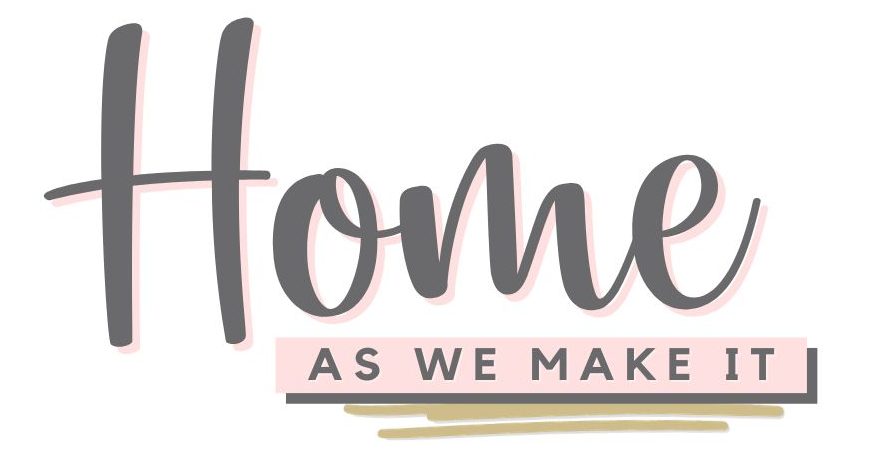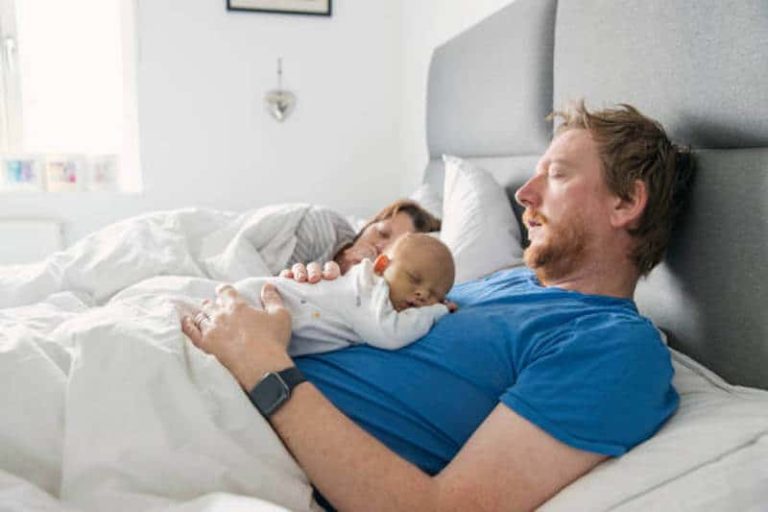Caring For Your Newborn: A Guide To Newborn Hygiene
One of the most important aspects of caring for your baby is hygiene. Keeping your newborn clean and safe can help prevent illnesses and infections, as well as promote bonding between you and your baby.
In this guide, we will provide you with essential tips on how to maintain proper hygiene for your newborn. From bathing to diapering, cleaning and grooming, feeding and spitting up, to keeping your home clean and safe – we’ve got you covered.
Note: This post may contain affiliate links, which means if you buy from my link I might make a small commission. This does not affect the price you pay. See the full affiliate disclosure here.
With our expert advice, you’ll be more confident in caring for your precious bundle of joy while providing them with the best possible start in life. So let’s dive in!
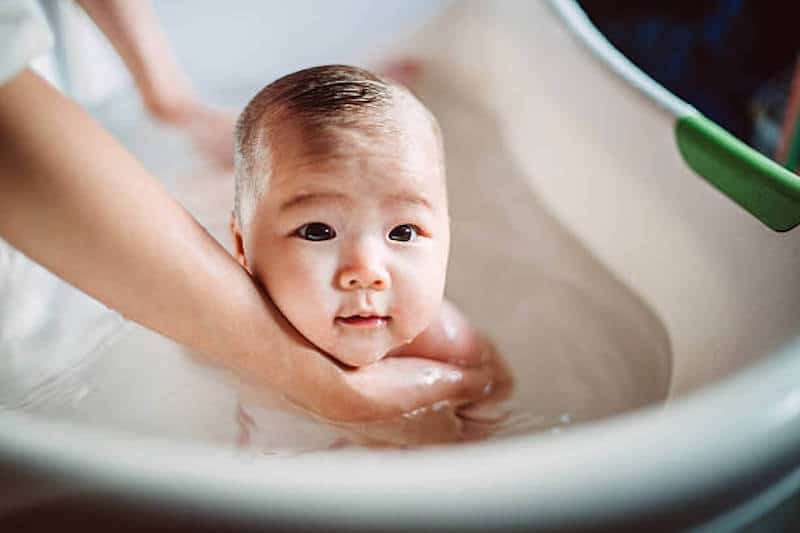
Bathing Your Newborn
When giving your little one a bath, remember to be gentle and use warm water to keep them comfortable. Start by filling the tub with just a few inches of water, making sure the temperature is around 100 degrees Fahrenheit. You can test this by dipping your elbow in and making sure it feels warm but not hot.
Once the water is ready, undress your baby and gently place them in the tub, supporting their head and neck at all times. Use a gentle soap specifically made for babies, being careful to avoid getting any soap in their eyes or mouth.
Remember to clean all of the folds on their skin, including behind their ears, under their arms, and around their diaper area. Rinse thoroughly with warm water before wrapping your little one up in a soft towel for some cuddle time.
Diapering Your Newborn
Make sure you change your baby’s diaper frequently to prevent diaper rash and discomfort. Newborns typically need their diapers changed every two to three hours, or after every feeding.
It’s important to check your baby’s diaper often, especially if they are prone to bowel movements. If you notice any redness or irritation on your baby’s bottom, try changing their diaper more frequently or using a barrier cream to protect their skin from further irritation.
Choosing the right size diaper is also crucial in preventing diaper rash and discomfort. A too-small diaper can cause chafing and irritation, while a too-large one can leak and cause moisture buildup. Make sure the diaper fits snugly around your baby’s waist and thighs without being too tight or leaving marks on their skin.
Remember that as your baby grows, so will their need for larger-sized diapers. By following these tips for proper diapering hygiene, you can help ensure that your newborn stays comfortable and healthy.
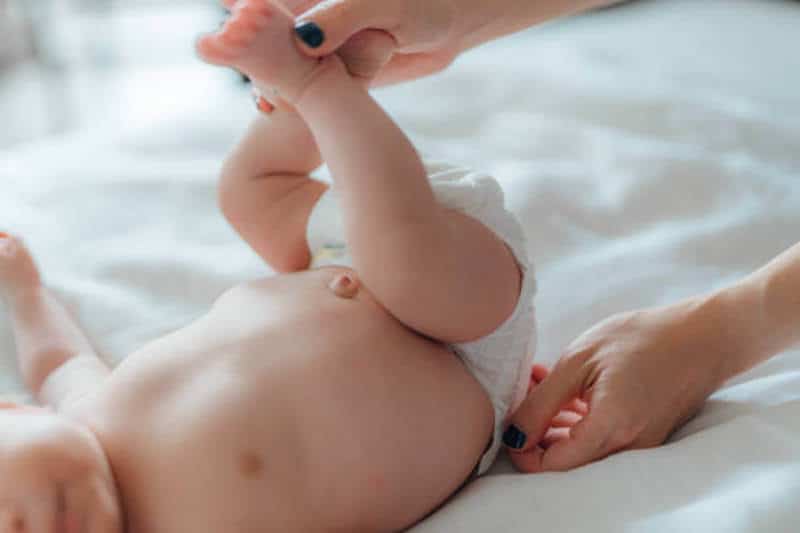
Cleaning and Grooming
To keep your baby feeling fresh and looking their best, it’s important to establish a regular cleaning and grooming routine. Here are some tips for keeping your newborn clean and well-groomed:
- Bathing: Newborns don’t need to be bathed every day, but they should be wiped down with a warm, damp washcloth daily. When you do give your baby a bath, make sure the water is warm but not too hot, and use gentle soap designed specifically for babies
- Nail trimming: Your baby’s nails may grow quickly and can scratch their delicate skin or even their face. Use special baby nail clippers or scissors to trim them regularly.
- Hair care: Some babies are born with a lot of hair while others have very little. Either way, it’s important to keep their scalp clean by washing it gently with baby shampoo as needed.
- Diaper area care: Always wipe your newborn thoroughly after each diaper change and apply diaper cream if needed to prevent diaper rash. Make sure to let the area air dry before putting on another diaper.
Remember that taking care of your newborn’s hygiene will help them feel comfortable and happy in their new world!
Feeding and Spitting Up
You’ll want to know all about feeding and spitting up to ensure your little one is well-nourished and comfortable. Feeding techniques may vary depending on whether you choose to breastfeed or formula-feed. Regardless of your choice, make sure you’re holding your baby properly during feedings.
A good position would be cradling their head with one hand while supporting their neck and shoulders with the other hand. You can also use a nursing pillow or prop up your baby’s head with a rolled-up blanket.
Burping is important after every feeding session as it helps release any swallowed air that may cause discomfort or colic in babies. There are different burping positions that you can try such as holding your baby upright against your chest while patting their back, or laying them face down on your lap while gently rubbing their back.
Remember that every baby is different and what works for one might not work for another, so don’t be afraid to experiment until you find what works best for you and your little one.
Keeping Your Home Clean and Safe
As a new parent, you want to make sure that your home is clean and safe for your little one. To ensure this, it’s important to keep up with cleaning and sanitizing regularly.
Additionally, babyproofing your home will help prevent accidents as your baby becomes more mobile.
When handling visitors, be mindful of germs and ask them to wash their hands or use hand sanitizer before holding your baby.
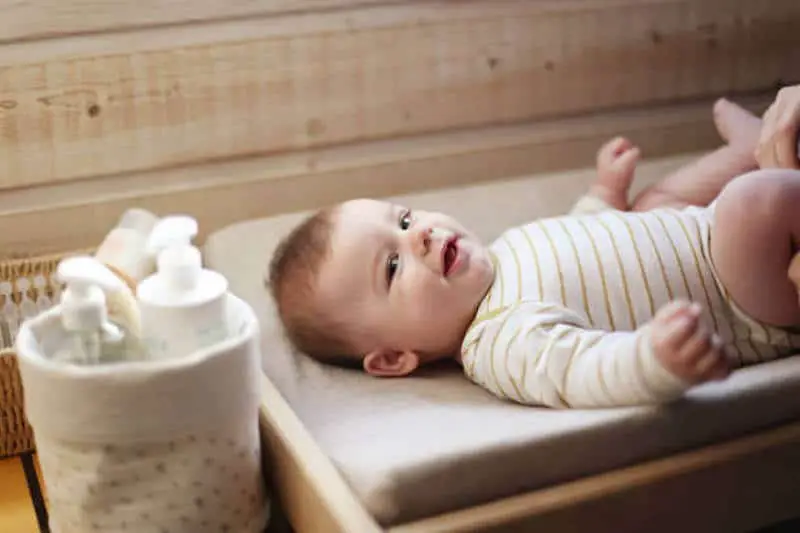
Cleaning and Sanitizing
Keep your baby’s environment clean and germ-free by regularly cleaning and sanitizing surfaces, toys, and other items that come into contact with your little one. In addition to practicing good hygiene habits like washing hands frequently and avoiding sick people, it’s important to take extra steps to keep your newborn healthy.
Proper bottle cleaning is crucial for preventing bacteria growth, especially if you’re using formula or expressed breast milk. Be sure to wash bottles, nipples, and any other feeding supplies in hot soapy water after each use and sterilize them at least once a day.
Another key aspect of newborn hygiene is bathing frequency. While infants don’t need daily baths like older children do, they still require regular cleaning to keep their skin healthy. Generally speaking, it’s recommended that you give your baby a sponge bath until their umbilical cord stump falls off (usually around 1-2 weeks old), then transition to a full bath every few days or as needed.
Use mild soap specifically formulated for babies and be gentle when washing delicate areas like the face, neck folds, and diaper area.
By taking these simple steps to clean and sanitize your baby’s environment, you can help protect them from harmful germs while promoting their overall health and well-being.
Babyproofing Tips
Got a curious little one on the move? Learn how to babyproof your home with these essential tips! Childproofing your home is important to ensure your baby’s safety.
Here are some childproofing essentials to keep in mind:
- Cover all electrical outlets with outlet covers.
- Install safety gates at the top and bottom of stairs to prevent falls.
- Keep all hazardous chemicals, medicines, and cleaning supplies out of reach or locked up.
In addition to these childproofing essentials, consider purchasing cabinet locks, door knob covers, and window guards as safety equipment recommendations to keep your baby safe.
Remember, no amount of preparation or planning can completely eliminate the risks associated with having a curious little one around. However, taking these steps can greatly reduce the likelihood of accidents happening in your home.
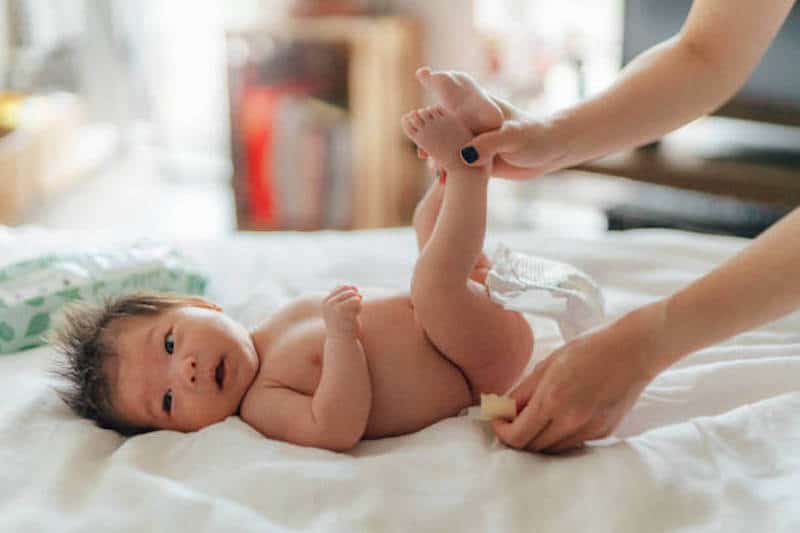
Handling Visitors and Germs
When visitors come over, it’s important to remember to be cautious about germs and take steps such as reminding them to wash their hands before holding your little one. It may feel awkward at first, but politely asking your guests to sanitize their hands can prevent infections and keep your newborn healthy.
In addition, it’s okay to set boundaries with visitors who are sick or have been exposed to illness. It’s better to postpone a visit than risk exposing your baby to germs.
Visitor etiquette is also an important aspect of keeping your newborn safe from infections. Encourage visitors not to kiss the baby’s face or hands, avoid bringing food or drinks into the nursery, and stay away if they are feeling unwell.
Remember that you are the advocate for your child’s health and well-being, so don’t hesitate to speak up if you feel uncomfortable with a visitor’s behavior. By taking these precautions and communicating clearly with visitors, you can create a safe environment for your little one while still enjoying time with friends and family.
Conclusion
When it comes to bathing your newborn, remember to use warm water and mild soap. Be gentle when washing their delicate skin and avoid submerging them in water for too long. After bath time, make sure to dry them thoroughly, paying extra attention to the folds of their skin.
Diapering is another important aspect of newborn hygiene. Change diapers frequently and wipe carefully with baby wipes or a damp washcloth. You may also want to use diaper cream to prevent diaper rash. Always dispose of dirty diapers properly in a sealed trash can.
Regular cleaning and grooming are essential for keeping your baby’s skin healthy. Use a soft brush or comb for their hair, gently clean around their eyes with a damp cotton ball, and trim their nails regularly. It’s also important to keep any equipment used for feeding (such as bottles or breast pump parts) clean by washing them thoroughly after each use.
Feeding your newborn can be messy at times, so don’t worry if they spit up occasionally. Simply wipe away any excess milk with a burp cloth or bib and change their outfit if necessary.
Finally, keeping your home clean and safe is crucial for protecting your little one from harmful germs and bacteria. Make sure to regularly disinfect surfaces that come into contact with the baby (such as changing tables) and wash any blankets or clothing that become soiled.
By following these simple guidelines for newborn hygiene, you’ll be well on your way to providing the best possible care for your precious little one!
